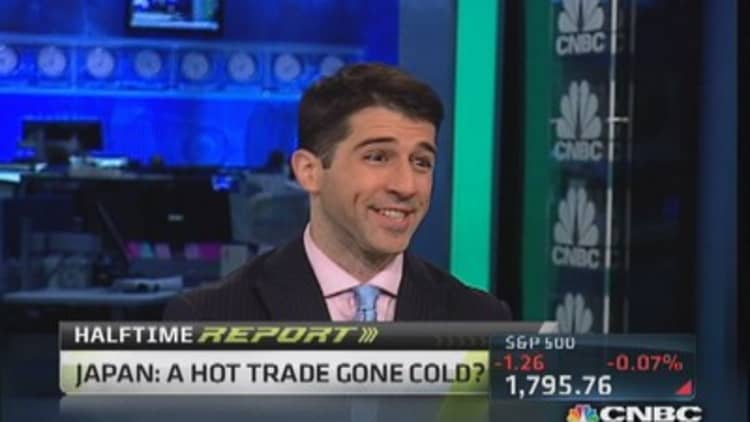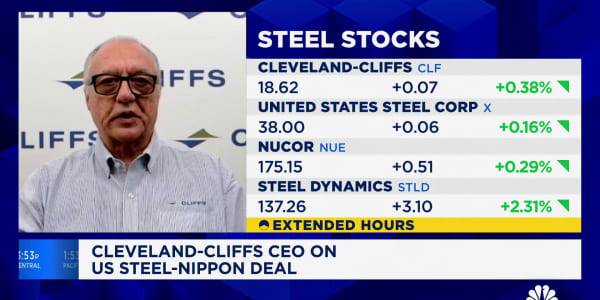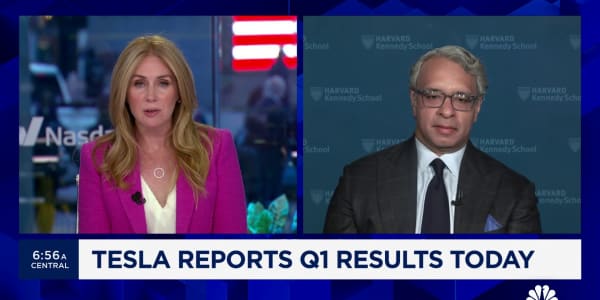Bridgewater Associates, the largest hedge fund firm in the world, has posted modest, positive returns this year as others that bet on macroeconomic trends have faltered.
Bridgewater's largest hedge fund, Pure Alpha II, fell 0.41 percent in March but is up 2.36 percent over the first three months of the year, according to two sources with knowledge of the performance. Pure Alpha I, a similar strategy that is designed to be less volatile, also fell 0.24 percent in March and gained 1.59 percent in the first quarter.
Bridgewater's Pure Alpha funds bet on dozens of different global markets at once, including stocks, bonds, interest rates and currencies.
The winning percentage for all bets in March was 55 percent, according to an investor in the fund. The largest winner for the month was developed market currencies, which gained 0.40 percent. The fund also gained 0.20 percent on stocks. Losers for the month included emerging market currencies (down 0.30 percent) and commodities (down 0.20 percent), according to the investor. Most other bets were "flat," meaning they did not gain or lose much money.
Bridgewater, which manages $150 billion overall, declined to comment.
Read MoreJPM, AQR win as hedge funds suck in assets
The firm founded by billionaire investor Ray Dalio has outperformed many other so-called macro funds so far in 2014. The Absolute Return Macro Index, which tracks hedge funds in the strategy, fell 0.84 percent in March and is down 0.80 percent for the first quarter, according to preliminary estimates.
Other prominent firms whose flagship funds fell in the first quarter include $15 billion Discovery Capital Management (down 9.3 percent in March and down 7.1 percent in the first quarter); $13.5 billion Tudor Investment (-0.32 percent/-3.2 percent); $8 billion MKP Capital Management (-0.77 percent/-4.50 percent); and $6.9 billion JPMorgan unit Gavea Investimentos (+0.05 percent/-1.16 percent).
Read MoreMarch technology losses burn hedge funds
Spokesmen for Discovery, Tudor, MKP and Gavea declined to comment.

Macro hedge funds have recently increased their bets on the appreciation of the U.S. dollar, commodities and emerging markets, according to an April 7 report by Bank of America Merrill Lynch's hedge fund servicing unit. They also remain slightly bullish on stocks, which is largely unchanged since the start of the year.
Read MoreHedge funds reverse course on dollar, 10 year
"Many macro funds have a long-term bullish growth outlook and so were long cyclicals and short bonds in the first quarter," said Michael Weinberg, a hedge fund expert at Columbia Business School. "But because economic data was weaker than expected, they got caught on the wrong side of those bets, at least in the short term."
Cyclical stocks refer to equities that are more correlated to economic cycles because the purchase of the products made by the companies can be delayed in poor financial situations.
Weinberg also noted that many macro funds were hurt by bets against long-term government bonds (in anticipation of rising interest rates), and on the appreciation of commodities and Japanese stocks.
Read More Macro funds got crushed in January on Japan trade
Bridgewater's Pure Alpha hedge funds have excellent long-term performance records despite posting tepid returns in 2012 and 2013. The Pure Alpha II fund has generated a net annualized return of 13.6 percent since inception in 1991. It gained 0.80 percent in 2012 and 5.22 percent last year.
—By CNBC's Lawrence Delevingne






